The Third Golden Age of Welsh Pop™ shows little sign of abating any time soon. Following his contributions to Cate le Bon‘s two extraordinary Cyrk releases and Euros Childs‘ sunshine classic Summer Special last year, Stephen Black now unleashes his own long awaited fourth album as Sweet Baboo. Originally from Trefriw in north Wales’ Conwy valley, SB has long been an integral part of the Cardiff musical community that includes Cate, Euros, H Hawkline, Richard James and Gruff Rhys, who can often be heard helping out on each other’s records. Their individual records bear little relation to any musical fashions but neither do they sound like each other, although a common aesthetic can, I think, be detected.
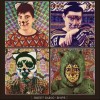 It’s been a while since 2010′s I Am a Dancer/Songs about Sleepin’ LP and the following Girl Under a Tree 10″ EP, but SB has been regularly performing live, both solo and as bassist in both Cate le Bon and H Hawkline’s bands. In fact it’s largely this frenetic activity that has delayed the release of Ships (Moshi Moshi), which was apparently finished a year ago.
It’s been a while since 2010′s I Am a Dancer/Songs about Sleepin’ LP and the following Girl Under a Tree 10″ EP, but SB has been regularly performing live, both solo and as bassist in both Cate le Bon and H Hawkline’s bands. In fact it’s largely this frenetic activity that has delayed the release of Ships (Moshi Moshi), which was apparently finished a year ago.
Live, solo, Sweet Baboo is a spectral pre-rock ‘n’ roll presence, a plaintive voice crackling from the grooves of a Victrola 78, set against musty old-time fingerpicking. It’s as if Al Bowlly and Blind Boy Fuller got together in the Welsh hills to form an Appalachian folk blues duo. This is just as great as it sounds and many of the songs on Ships first entered my consciousness in this form back at a festival appearance in 2011.
Great records should be more than a mere reproduction of the live experience, and Ships is an up-tempo pop jewel, drenched with brass arrangements (the result of a recent Dexys fixation), infectious Motown grooves and dissonant electronics… and most importantly, exemplary songwriting. Album opener “If I Died…” reprises a song from I Am a Dancer but where the original was sparse and maudlin, the update bounces on a chiming Highlife groove. A great opener featuring a wonderful ring-modulated guitar (or is it a keyboard?) solo, the song is already the album’s second single, and who could remain unmoved by the line:Daniel Johnston has written hundreds of great tunes/and I’ve got six/so I guess there’s some catching up to do/to tell you that I love you/to tell you I’m sorry for what I am?
…although surely if SB had six great tunes when the song first appeared back in 2010, then on the strength of this LP, it can be safely doubled by now.
By the marching band/funk hybrid of second track “The Morse Code for Love is Beep Beep, Beep Beep, the Binary Code is One, One,” it becomes obvious that this is the work of an alchemist so steeped in the swelling river of popular music that he can effortlessly throw together folk, calypso, avant-noise, ragtime, vaudeville, soul, swing, country and anything else without seeming contrived. The pick’n’mix approach extends to cultural references – the wonderfully surreal “Twelve Carrots of Love” gives a melodic nod to Bob Dylan‘s “Love Minus Zero/No Limit” much as Dylan did to his own predecessors while “8 Bit Monsters” contains a chorus seemingly stitched together from James Brown and Charles Manson:
Please please please/I will never learn not to love you
If you’re lucky enough to find one of the limited edition vinyl copies of the album, you’ll even get a bonus CD, Chips, featuring reworkings of four of the songs in a contemporary urban style – all auto-tuned vocals and sampled loops – the continuum of pop music for Stephen Black encompasses Kanye West and Flanagan & Allen in equal measures!
This is no history lesson though – each arrangement works in service of the song… and what songs they are. Billed as a concept album about all things nautical, this turns out to be a bit of a red herring (excuse the pun) – in fact, as ever with Sweet Baboo, the songs here are all about girls. Sure, he might be searching the coast of Anglesey for a mermaid to marry in “The Sea Life is the Life for Me (Mermaid Cutie)” or enticing a young girl into the water in “Let’s Go Swimming Wild,” but the sea is very much background to the girl.What makes Sweet Baboo great rather than merely clever, is the attention to detail – those little things in the songs that convince you that this is all true… that it is Stephen Black and not a literary construct singing the words. When I saw Sweet Baboo live back in 2011, I was spellbound by an as then unreleased song that documented his friendship with Cate le Bon via a string of mundane reminiscences of swapping shoes, singing harmonies to cassettes during the four and a half hour drive to practices at bandmate Siôn Glyn‘s house or meeting Paul Daniels and Debbie McGee at an airport. The understated conclusion that ‘I’m glad that we are friends’ makes it perhaps the most affecting musical articulation of affection since Matching Mole‘s “O Caroline” in 1972. The Byrdsesque jangling, brass-propelled version of “Cate’s Song” that closes the album loses nothing of the poignancy that I heard two years ago, and is the highlight of an album packed full of highlights.
This ability to frame direct emotional honesty in light hearted triviality is a rare treasure – precedents that come to mind being Jonathan Richman, the previously mentioned Daniel Johnston, and Dan Traecy of the Television Personalities. It’s been a long time coming, but in Ships, Sweet Baboo, with the able help of producer and multi-instrumentalist Rob Jones and regular drummer Avvon Chambers, has made an extraordinary and rewarding album that will only grow in status over the years.
After a week of having the album on almost constant rotation, I caught the train up to Chester on 30 April to see Sweet Baboo live at Telford’s Warehouse and cornered him for a chat over a beer on the nearby canal bank immediately before the show:
Are you happy with the new album?
Yes, we finished it ages ago – we started last January and finished last May, but because a record company got involved and I was busy, it took ages to come out. I am happy with it, but I still think it’s two songs too long and now I wish we hadn’t put quite so much brass all over it. I love all my albums until I get them mastered and then I never listen to them ever again. Why would you? …you just want to get on to the next one don’t you?I’ve known a lot of those songs from live shows over the past few years, but it’s nice to hear them in a different context.
Yes, I’m glad we made the album that we did. I like continuity – I like records that sound the same all the way through. The most conscious decision was to say right, we’ve got brass instruments, this keyboard’s on every song and this keyboard’s on every song and we’d ring modulate one thing on every song… I like order and rules. I’m really proud of what we did and I think Rob who produced it is proud of it – he worked really hard on this.
The attention to detail in your songs makes them sound convincingly truthful – they remind me of Jonathan Richman in that respect. Are you as honest and truthful in your songs as would appear or are you just a very good actor?
They’re all first person things, even the songs which are more kind of abstract or ones which don’t really make any sense to anyone unless they’re explained. If I try to write from a different perspective it sounds weird and I don’t feel any emotional attachment to it, so yes, they’re all first person songs really. Jonathan Richman is amazing because he’s got like, silly songs, but you always believe everything. Last time I saw him in Bush Hall in London, he was dancing around and joking and then finished with that song about his mum dying, no encore, and it was just heartbreaking.
So has he always been an influence on you?
I think so, yes, since I was about 16…. and the Gorkys too – Euros is like that too, even though he does stories, you know that underneath there’s some kind of truth hidden. But yes, Jonathan Richman’s a massive influence.Mentioning Euros, it seems to me from here up north that Cardiff has a scene which is almost like a collective, where artists all interact and help each other out – you, Euros, Cate le Bon, H Hawkline, Richard James. You all play on each other’s records and seem to share a sort of aesthetic… and of course Siôn Glyn also plays with most of you.
Yeah… I think that for me and Cate and Huw, that all comes from the Gorkys – when we do stuff for Euros and Rich, there’s still quite a massive fandom there. Especially with Euros’ productivity these days of releasing record after record after record and being so singleminded in what he does – it’s just a good example of how you should be. I think what’s nice as well in Cardiff is we’re all in our thirties basically; it’s not like we’re all 21 and trying to ‘make it’. It’s just that we like making records and playing.
I don’t think it’s specifically Cardiff though – it’s just Wales isn’t it? We’d think nothing of driving four and a half hours to Siôn Glyn’s house for a practice and when I lived in north Wales, I thought nothing of travelling down to Cardiff to do a gig and then drive back.I just think Wales in general has maybe an underdog kind of attitude so it’s quite a sharing community rather than somewhere like London where you maybe have to fight for your right to be heard.
It’s also a matter of motivation – whether you’re trying to ‘make it’ or are just driven to play music?
Everyone I know just doesn’t want to do anything else. We talked about this in the car the other day – it should be, number one: you make songs and record music and then number two: you go “OK I’ve done that now, maybe someone will release it… if no-one releases it who cares? We’ll just make another one.” You know the most important thing is making the record and everything else is secondary.
Ships opens with a new version of “If I Died” from your previous LP. Is that consciously passing the torch from one to the other, creating continuity?
I think it ended up as that, but it started up when we were doing gigs around the last record as a band, and loads of the songs were just acoustic so we started playing it in a more upbeat kind of way. I just thought it was a nice thing and I definitely made a conscious decision to make a more upbeat poppy record and so we thought it was a nice idea to put a new version of what was quite sombre on the last record. And lots of the people that I like – Jonathan Richman and Daniel Johnston for example – will record the same song twice – it’s kind of like self-referencing a little bit.
Yes, and it’s getting away from that post-recording age idea of a definitive version – a song can exist independently of a recording.
Yes, and also when you play the songs with a band on tour they change and develop and become something different, and if you can record them after you’ve played them for a year they sound completely different – there’s never a definitive version really.Your music seems to draw on the whole continuum of popular music from ragtime, swing, folk… and with soul type brass on the new record. There seems to be references to other songs and artists, like “12 Carrots” musically references Dylan’s “Love Minus Zero.”
Ah, it’s that one is it? – my mum said “that’s a Bob Dylan song” but couldn’t remember which one…
…and the chorus to “8 Bit Monsters” lyrically cuts together James Brown’s “Please Please Please” with Charles Manson’s “Cease to Exist.”
The Charles Manson line “Never Learn Not to Love” is a direct… well, I’ve just stolen the lyrics to it, haven’t I?You’re OK until he gets out of prison…
Exactly yeah… so that’s a direct reference, and then some things are subconscious and just seep in and other ones, I don’t know whether it’s deliberate in a good way – you just think “that’s cool, let’s just do that.” I think most people write songs like that don’t they, just steal someone else’s chords?
Yes, I think so – it’s fun spotting the references. We’ve grown up with these songs so they’re part of our environment really. It’s the same with the line in “If I Died” where you sing “Daniel Johnston’s written hundreds of great songs and I’ve got six, so I’ve guess that’s some catching up to do”… I don’t suppose you’d care to say which six songs you think are as good as his?
Ha… don’t know, that’s a good question though… err… no I’m not going to say!
We were talking about the traditional or historical element to the music, but you also throw in modern sounds, with dissonant synth breaks or noisy guitar solos, and the Chips bonus CD that you get with the vinyl version is just full of auto-tuned vocals and contemporary R‘n’B sounds…
Yeah, it was meant to sound like Kanye West or Frank Ocean, people like that.
I think especially with this record we just decided as well… I’m a big fan of getting a sound and then messing it up as much as possible. If I could, I’d probably make these really amazing avant-garde noise records but then there’s a part of me that just likes pop music too much, so it’s trying to fit in as much of those disgusting sounds that you can without overpowering the songs.The interface between genres is far more interesting than the pure forms, whether it’s pure folk or purely experimental – you listen to a Wire magazine CD and think “yes that’s interesting, but I never need to hear it again,” but some of those ideas can be put into pop music and made much more interesting… it’s like why would anyone want to listen to traditional blues these days?
Well, if you’re going to listen to traditional blues, you might as well listen to a recording from the 1920s. I’ve got a lot of friends who play jazz music and some play experimental jazz and they’re adding all kinds of elements and then you’ve got some people who just want to play traditional swing music. That’s a different thing entirely – that’s learning a skill, and I don’t know how you’d put your own emotions into that really.
I like to think that we’re in the middle of a third great upsurge of Welsh music, the previous one being Gorky’s Zygotic Mynci and Super Furry Animals back in the mid ’90s and then before that Datblygu and those a decade previously.
That’s cool. I grew up with Gorkys and Super Furries and I still genuinely think that Wales makes the best pop music in the world.Well I think they were the best two groups around at the time
Definitely yeah, and I think all of us lot owe a massive debt to them really. I get asked quite a lot in interviews “Do you think it’s hindered you coming from Wales, compared to London?,” but I can’t think of any bands from London that I actually like. All good bands come from somewhere provincial and make strange and amazing… well… pop music essentially, and I think Wales will always make amazing pop music because we’ve got nothing else to do, have we?
*
And with that, it was time for Steve to hit the stage and illustrate his final assertion. The live group is the same as on Ships: Avvon Chambers on drums and Rob Jones on bass, but minus multi-instrumentalist Jones’ brass and keyboard embellishments, the songs take on yet another life – a kind of garage power pop (dare I mention Big Star?). With a set comprising most of the new LP alongside a couple of old favourites and three brand new songs, it becomes evident that SB’s songs are able to adapt to almost any situation.
A larger than usual Telfords audience (all that Marc Riley airplay must be working) is kept enraptured for a concentrated hour of non-stop pop delight, punctuated only by Steve’s deadpan explanations of some of the songs. By the second encore of “Twelve Carrots,” when he follows up the line “I must confess that I am in the best band ever /and I make the best love ever last for weeks and weeks and weeks and weeks” with two of the most blistering noise guitar solos, nobody in the room is inclined to doubt him.
Never a man to rest for too long, there is another Sweet Baboo tour in June, this time a solo acoustic one. The date is in my diary.
-Alan Holmes-
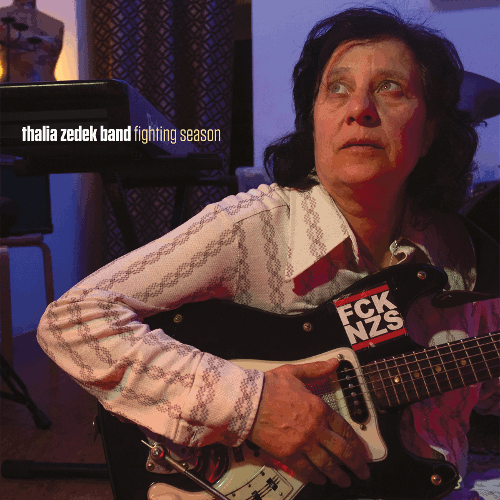
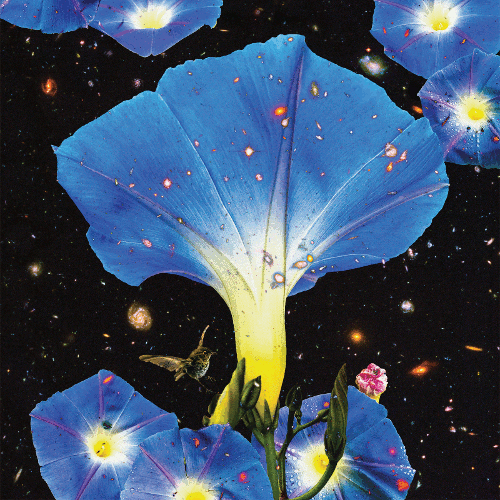
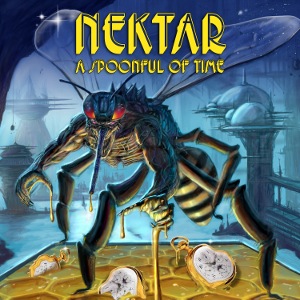
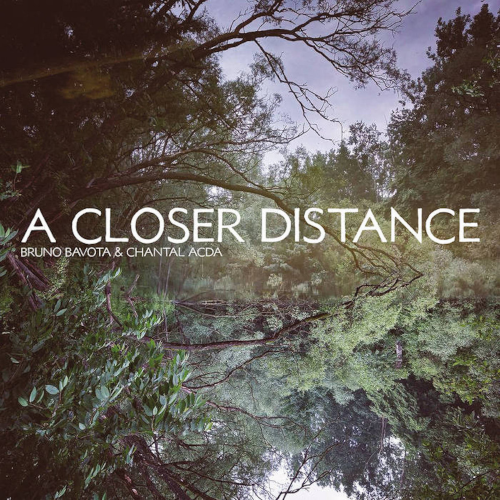
One thought on “Sweet Baboo – live, interview and album feature”
@Sweet_Babs Review/interview thing here:
http://t.co/YT1xu889YP